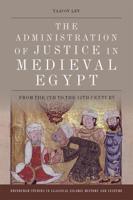Publisher's Synopsis
The birth of nationalism in the Arab world is deeply intertwined with the actions of European powers that sought to reshape the region for their own purposes. The arbitrary borders established through agreements like Sykes-Picot not only disregarded the realities of Arab identity but also sowed the seeds of ongoing conflict and resistance. As the Arab nations grapple with the consequences of this historical betrayal, the struggle for self-determination and the quest for national identity remain central themes in the contemporary socio-political landscape. Understanding this interplay between nationalism and foreign intervention is crucial to grasping the complexities of modern Arab conflicts and the enduring impact of historical decisions made long ago. Foreign intervention has not only created immediate political ramifications but has also exacerbated social issues within Arab societies. The imposition of Western-style governance systems often clashed with traditional forms of authority, leading to a crisis of legitimacy for many regimes. As a result, the state-building efforts initiated by foreign powers frequently resulted in weak institutions that struggled to address the needs of their citizens. This disconnection has fuelled widespread disenchantment, contributing to the rise of extremist groups that exploit grievances against both local governments and foreign influences. Consequently, the socio-political landscape of the Arab world has been marked by violence, instability, and the emergence of non-state actors.
The ramifications of these historical decisions are evident in the ongoing conflicts that plague the region. Civil wars, insurgencies, and the rise of terrorist organisations can often be traced back to the legacy of European colonialism and the subsequent geopolitical manoeuvring during the Cold War and beyond










